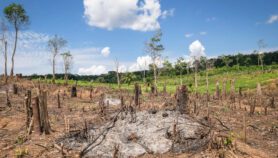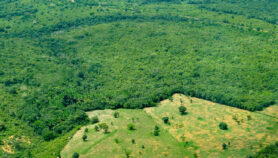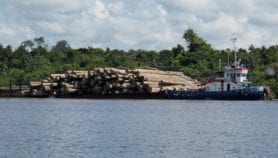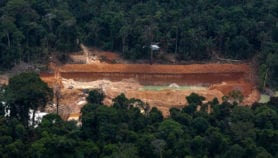Send to a friend
The details you provide on this page will not be used to send unsolicited email, and will not be sold to a 3rd party. See privacy policy.
Protecting the Earth’s forests and replanting those already lost are essential both to reduce flooding and soil erosion and to safeguard wood and water supplies, says Lester R. Brown, president of the Earth Policy Institute.
For developing countries, decreasing the pressure on forests means reducing fuel wood use, says Brown. Kenya is making some progress, with both a solar cooker project and the distribution of 780,000 efficient stoves by the US Agency for International Development.
Brown argues that in the long term, alternative energy sources will be the key to reducing forest pressure in developing countries.
But sustainable forestry can also protect forests, he says. Selective felling can keep forests productive indefinitely and forest plantations could satisfy the world’s wood demand. Plantations might even be profitably established on deforested or degraded lands, says Brown.
South Korea provides a model for the rest of the world, he suggests. Through village cooperatives, the country has led a national reforestation effort that has dug trenches and created terraces to support trees planted on barren mountains. Today, forests cover 65 per cent of South Korea.
The World Bank has the administrative capacity to lead an international programme that can emulate South Korea’s efforts, says Brown. And bilateral agencies can work with individual farmers in agroforestry programmes.













